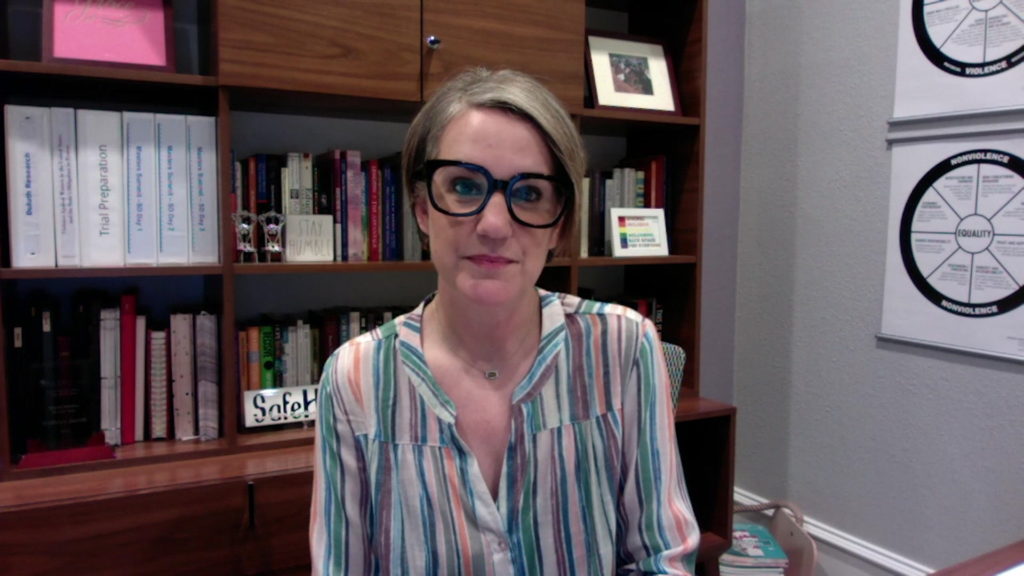
Judy Woodruff: Many victims of domestic violence have been trapped at home with their abusers during this pandemic.
In tonight’s Brief But Spectacular, we meet Kathryn Jacob. She is CEO of SafeHaven, which focuses on creating preventative programs that help high-risk people before they become survivors.
Kathryn Jacob: It’s interesting that we use the word pandemic to describe what’s happening in our — all of our communities right now, because domestic violence has been a pandemic in Tarrant County, Texas, but really all over the United States, for many, many years.
One in three women in Tarrant County, Texas, will experience domestic violence in her lifetime. That is far greater than the number of people who are currently experiencing COVID-19. It is not as deadly, but it is certainly as transformative.
Everything is bigger in Texas. So, Tarrant County is a very large place. But we have hundreds and hundreds of domestic violence cases, thousands every year.
SafeHaven started in the late 1970s. A group of like-minded women in Fort Worth, Texas, decided that a domestic violence was an issue in this community, and they decided they wanted to do something about it.
And so we run the emergency shelters and the hot line and all the kind of normal services that you would see out of a domestic violence organization. We have clients who are actively seeking our services, because someone is in pursuit of them.
Shame and gaslighting is pervasive in our work. It happens even from people who have the best intentions. So, even asking the question, why doesn’t she just leave really puts the blame on the victim for staying in a relationship. So, when a victim calls us and says, “I’m a victim of domestic violence,” we don’t ask to investigate that or ask for proof of them being a victim.
We start by believing the words that they’re telling us.
In 2020, we have had, sadly, a spike during COVID. So, we actually went from September of 2019 to March of 2020 without experiencing a single intimate partner homicide. But, sadly, since March, we have had 17 intimate partner homicides.
One of the tools and tactics that a domestic violence offender has is the tool of isolation, the idea that they would isolate their victim from their friends and family. The idea that this tool of isolation is being requested by our government officials to use in a good way with a good intention, it really puts domestic violence victims in a very scary situation.
I would say the biggest thing that we want to tell everybody is to check on your friends and family.
My name is Kathryn Jacob, and this is my Brief But Spectacular take on confronting the pandemic of gender-based violence.
Judy Woodruff: And it is such an important message.
And you can find all of our Brief But Spectacular segments online at PBS.org/NewsHour/Brief.
ncG1vNJzZmivp6x7sa7SZ6arn1%2Bjsri%2Fx6isq2eSp7amso5sbm1rZGh8rK3Toamypl2frqS7wQ%3D%3D